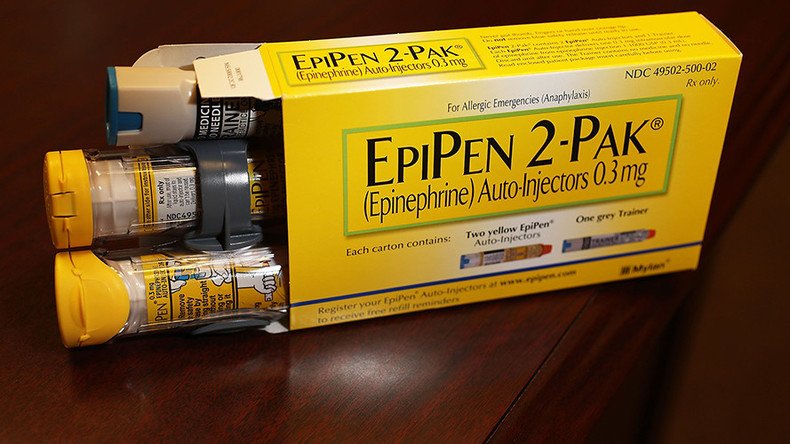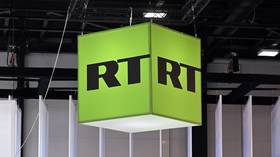Maker of EpiPen hit with fraud & racketeering lawsuit over price-gouging

A group of EpiPen purchasers have hit drug maker Mylan with a class-action lawsuit, claiming the company engaged in illegal price fixing to inflate the price of its allergy treatment over a decade by 574 percent.
According to the complaint filed in Washington state on Monday, Mylan acquired the rights to market and distribute EpiPen in 2007, and increased the list price 17 times, from $90.28 to $608.62, causing some patients to resort to carrying expired EpiPens, or to use syringes to manually inject epinephrine.
Plaintiffs argued the skyrocketing list price for the EpiPen was the result of Mylan’s behind the scenes payments of rebates to pharmacy benefit managers – CVS Caremark, Express Scripts and Optum Rx – which handle prescription drug benefit programs of insurance plans.
EpiPen maker set to lose $800mn in 2017 as CVS & major insurer turn to rivals https://t.co/A1pVbYdG5spic.twitter.com/SKnBFWMQ5e
— RT America (@RT_America) January 13, 2017
“Mylan has tried every trick in the book to avoid taking accountability to the millions of people who are living without the EpiPen they need to prevent a life-threatening allergic reaction. Despite the fiction that Mylan has tried to sell the public and sell Congress, the numbers don’t lie – Mylan has been the motivating force behind the jaw-dropping 574 percent EpiPen price hike,”said Steve Berman, managing partner of Hagens Berman, which is representing the plaintiffs. “We say, let’s put it all on the table and let the courts decide. Mylan’s victims deserve their day in court.”
Mylan CEO Heather Bresch testified before Congress last year that the “system is broken,” and that few people end up paying the full list price.
However, the Seattle suit says that the pharma company willingly chose to participate in the scheme that ultimately raised out-of-pocket prices for consumers for both pre-deductible purchases and coinsurance costs.
EpiPen maker refuses to testify to Senate on $465mn settlement https://t.co/x0KaHATjn1pic.twitter.com/gx4McKKmiW
— RT America (@RT_America) November 22, 2016
The majority of allergies can be treated with over-the-counter medication but people with certain food allergies or reactions to bee stings can develop anaphylaxis, a reaction that cause the airways to constrict. Untreated the patient can die.
The EpiPen, a prescription auto-injector contains epinephrine (or adrenaline), a naturally occurring hormone and neurotransmitter, and treats anaphylaxis.
Plaintiffs include three women with high-deductible insurance in Washington state, Colorado and Maryland, who said they had to pay hundreds of dollars for packs of EpiPens because of Mylan’s practices.
Most customers have some form of insurance that covers all or part of the cost of their purchase, but a small fraction of the people pay the list price for the device either because they have no insurance or because they are buying multiple packs of EpiPens and only one pack is covered by their health insurance.
The EpiPen gained widespread attention last year because of its price, with Bresch being called to testify before the House Oversight Committee in September and lawmakers proposing changes to prevent similar increases.
Mylan has since started selling a generic version at a list price of about $300 for a two-pack, instead of $600.
EpiPen price hikes increase Pentagon drug budget over 1,000% in 8 years https://t.co/SRuti5vHOBpic.twitter.com/KtS9kv2KtM
— RT America (@RT_America) October 28, 2016












